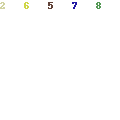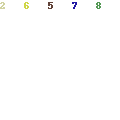

| Online: | |
| Visits: | |
| Stories: |
Holy Crap!: Predictive Programming The Economist Shows Pulse Shooting in 2016 Cover!
HOLY CRAP!: Predictive Programming The Economist Shows Pulse Shooting in 2016 Cover!

The claim is that when conspirators prepare a false flag operation, they hide references to it in the popular media
Predictive programming is a repeated component across many conspiracy theories. The claim is that when conspirators prepare a false flag operation, they hide references to it in the popular media before the horror occurs; when the event happens, the public has softened up, and as a result passively accepts it rather than offering resistance or opposition.
The concept originates in conspiracist pareidolia, viewing the real world as a slightly surreal literary construct complete with foreshadowing; the theory is invoked to attempt to clarify why anyone would even do such a thing in the real world.
The main issues with the idea are the ridiculous infeasibility of the conspiracies that would be needed, and the contrived nature of the theory itself, where the less realistic an example is, the stronger it is designed to to be. The logical fallacies involved are cherry picking and special pleading.
How it allegedly works
Examples include:
1, David Icke’s claim that the Sandy Hook shooting was predicted by the film Dark Knight Rises
2. Alex Jones’ belief that the Mexican oil rig explosion of 2010 was predicted in the film Knowing
3. 9/11 conspiracists find these all over the place.
The theory is utilized to push implausible claims about the future. The totalitarian U.S. government in films such as The Hunger Games is taken as foreshadowing of such a government in reality. The truth is, pretty much any totalitarian government in fiction: predictive programming forecasts that folks would be more likely to accept the concept based on exposure to the idea in fiction.
That the government is pictured as a villain to be resisted is stated to be irrelevant; simple exposure to a concept is claimed to induce acquiescence to it. Science fiction includes a surrealistic tinge, consequently disarming the public from experiencing it as undesirable. Conspiracist Researcher Alan Watt explains:
Things or ideas which would otherwise be seen as bizarre, vulgar, undesirable or impossible are inserted into films in the realm of fantasy. When the viewer watches these films, his/her mind is left open to suggestion and the conditioning process begins.
Issues
The first issue is the question of why nobody in the entertainment industry has exposed this information. Based on the example from Icke pointed out above, the shot in Dark Knight Rises showing a close-up of a map with the name “Sandy Hook” visible is planned predictive programming. If that were the case, then logically several folks involved in the shot would have been in on the conspiracy: the director, the cameraman, whomever obtained a map exhibiting Sandy Hook as a prop, and the stage hand who positioned the map on the table in the right position.
If plans to commit mass murders are regularly being uncovered to the entertainment industry, and the data is evidently reaching low-level workers such as cameramen and stage hands, then certainly one of them would have blown the whistle by now?
The second issue is the heads-I-win-tails-you-lose nature of the claims: that the less credible the claims, and the more artificial the link, the more powerful it must be.
New World Agenda reports:
You can’t make this shit up! WOW!
https://extracapsa.files.wordpress.co
Feel free to leave a comment. We would like to know what you think.
There’s Nothing More Valuable Than Knowledge.
The Rabbit Hole Goes Real Deep, Find Out How Deep… HERE





